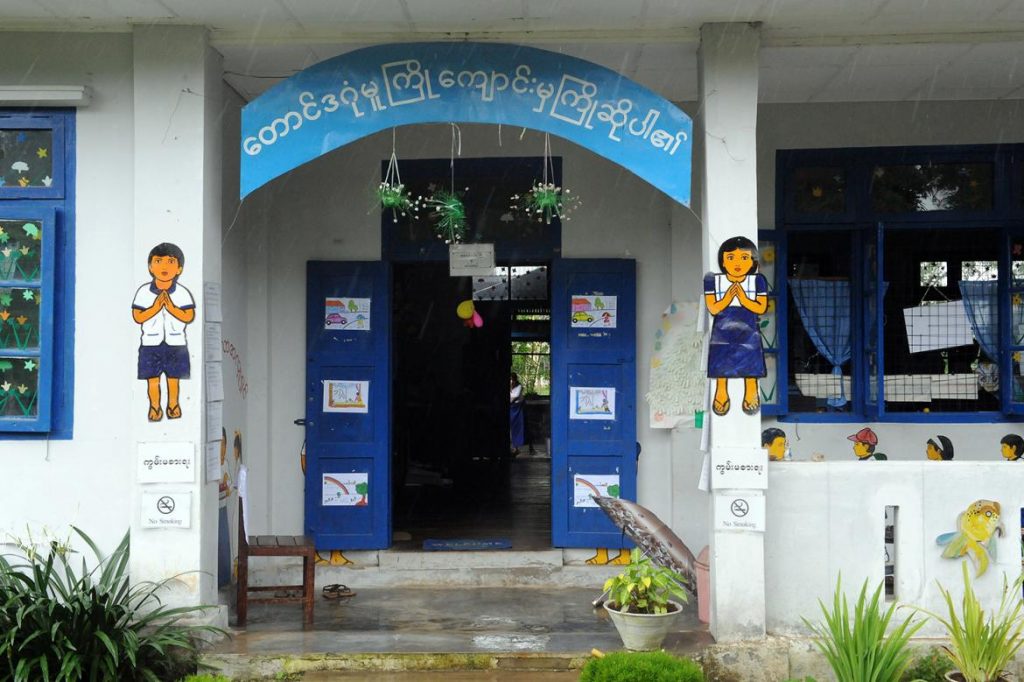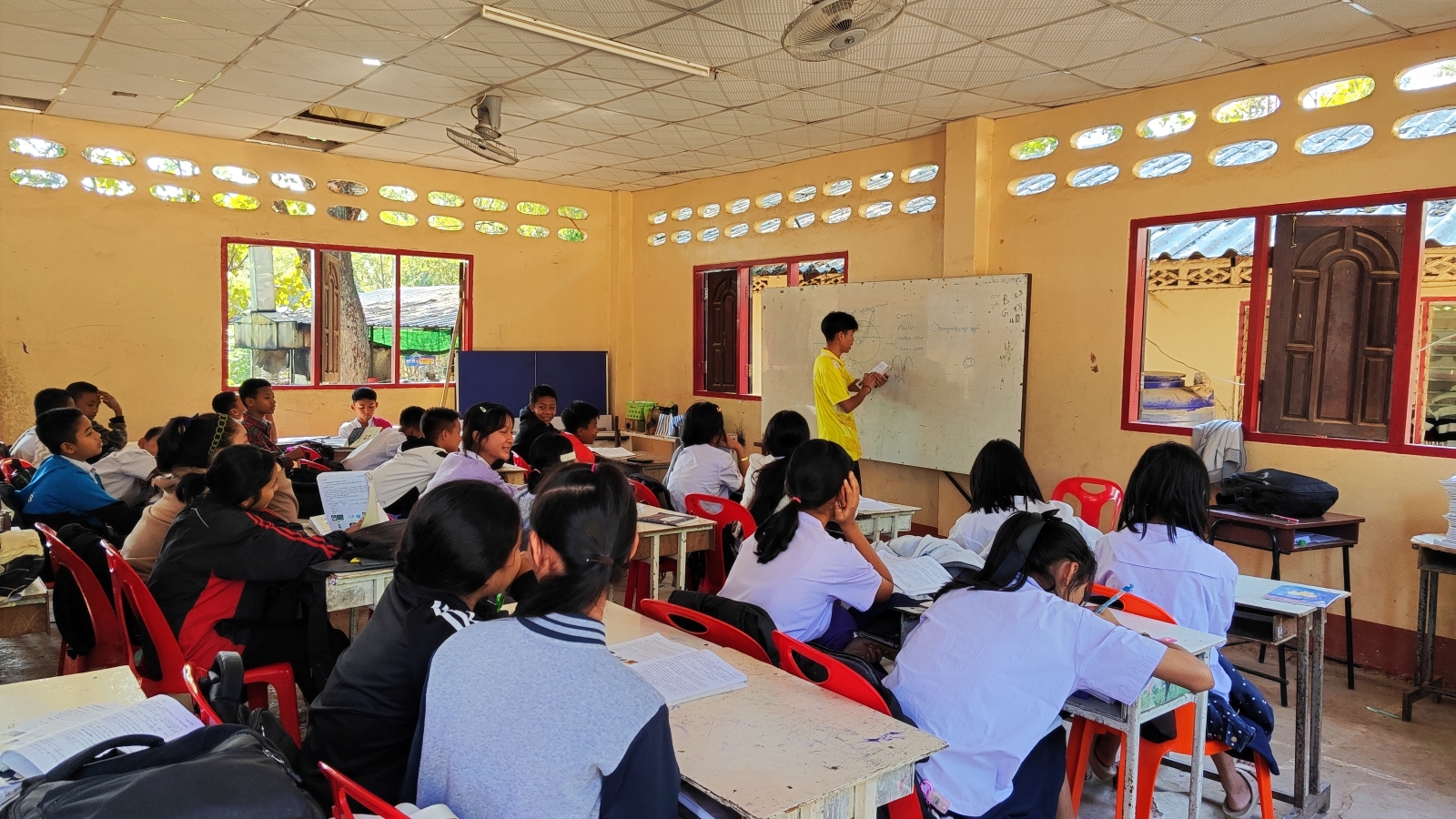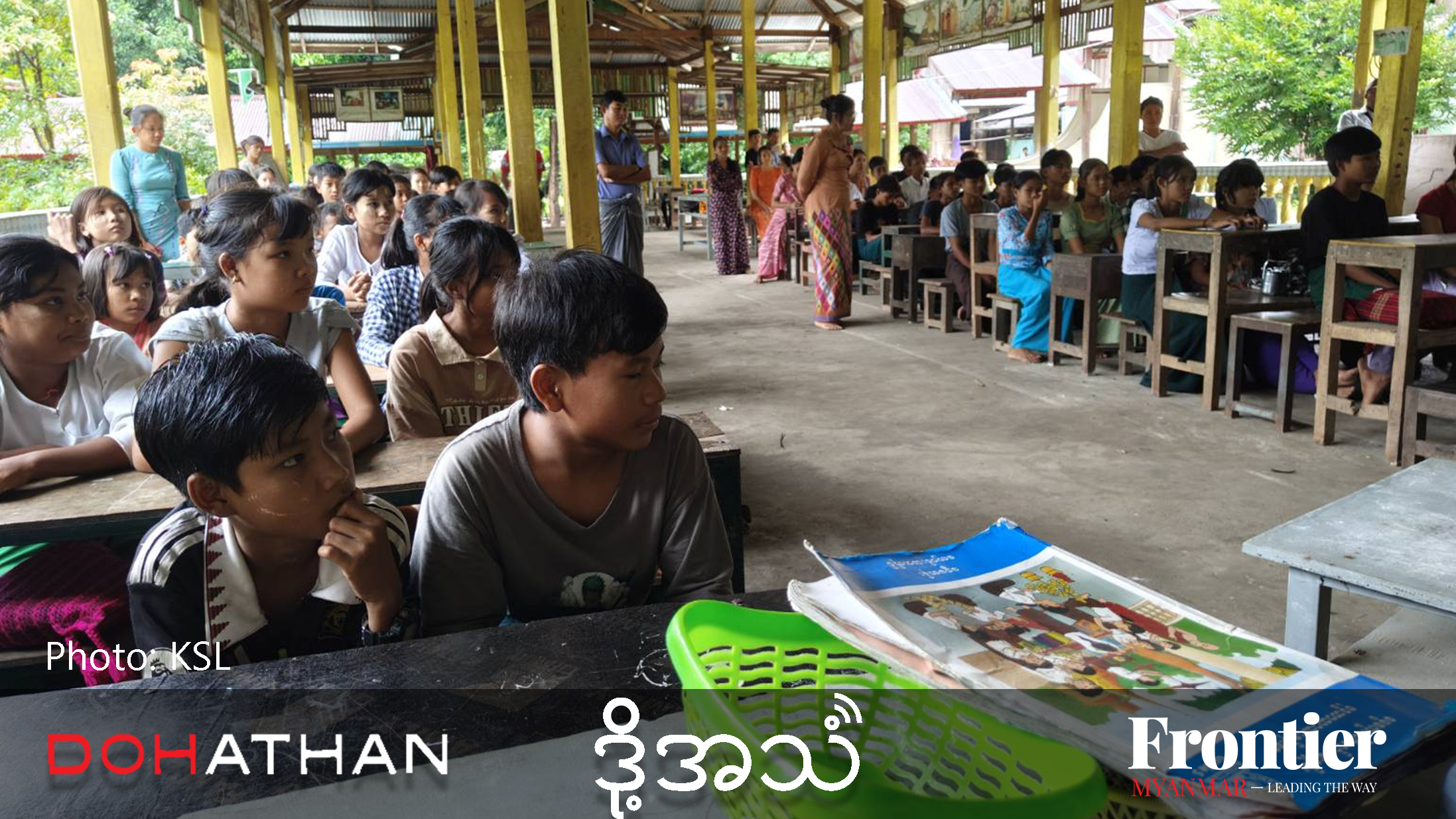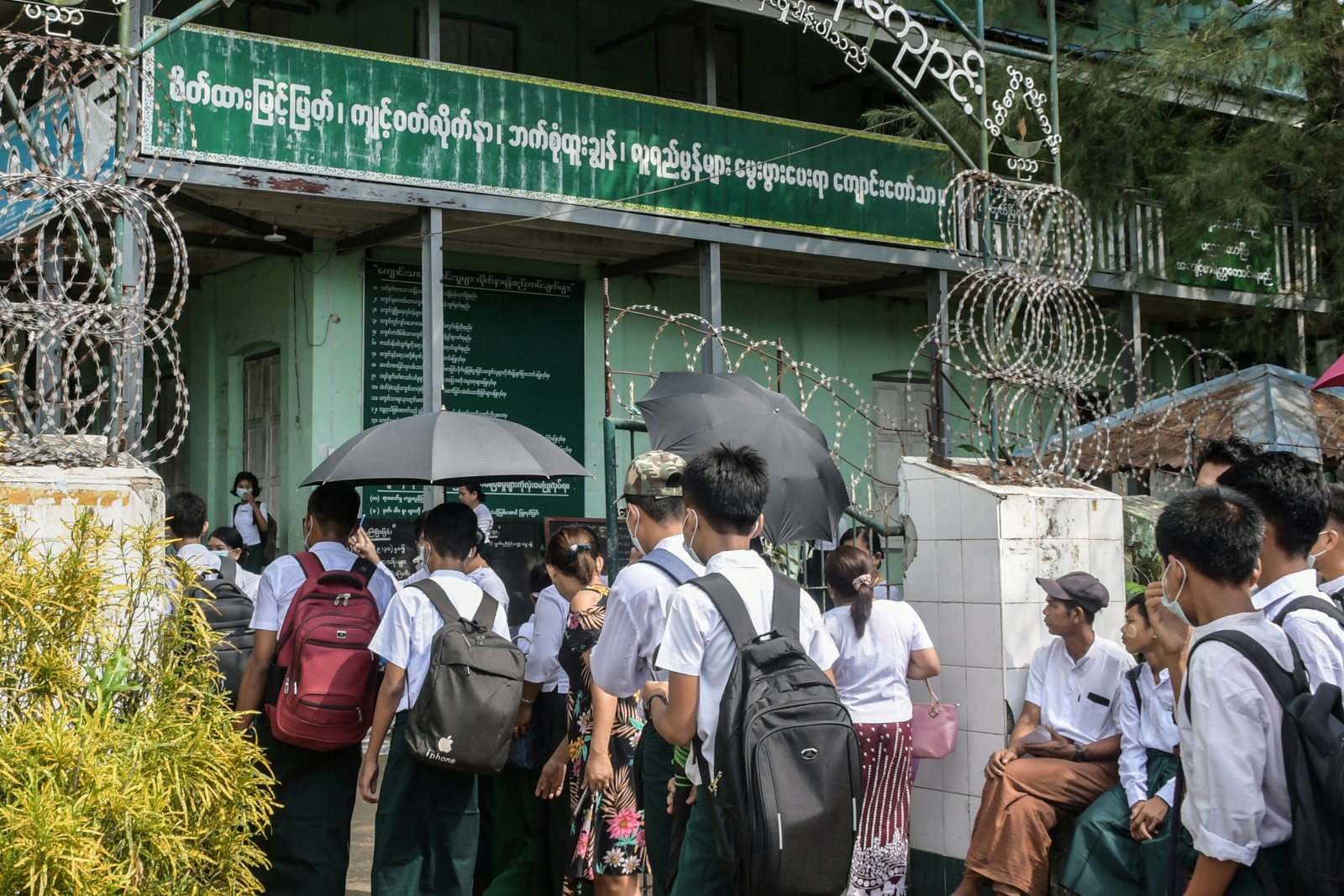Greater English aptitude can open doors, but it’s equally true that open doors can lead to greater English aptitude.
By EWAN CAMERON | FRONTIER
HEADS WERE shaking and people were muttering on social media when the results of the English Proficiency Index, published annually by Sweden-based company Education First, ranked Myanmar in the bottom 10 percent of English speakers worldwide. Some pointed the finger at government mismanagement, while others reacted in disbelief. Worse than Thailand? Surely not!
However, the report contains flaws that call into question its validity, and its analysis reveals a privatisation agenda that Myanmar should treat with serious caution.
First of all, there’s the methodology. The report draws its findings from self-selecting English learners who take the company’s online Standard English Test, which assesses reading and listening aptitude. Although the sample was balanced for gender, it simply cannot claim to be representative of a nation’s English speakers. Those who don’t use the Internet regularly, or simply weren’t aware of the test, were excluded, and those confident enough in their English may have had little interest in taking the online test. The sample was also limited to 400 people, too small a size on which to generalise about a whole country.
Given that the report was published by a large private education company with almost 50,000 employees, it’s unsurprising that its analysis should favour privatisation in education. The report’s authors remark that in countries with severe deficiencies in education – such as Myanmar, where the government spends only 2 percent of GDP on the sector – “expanding public-private partnerships is a faster solution than system-wide reform”.
Support more independent journalism like this. Sign up to be a Frontier member.
A faster solution may not be a lasting one, though. Public-private partnerships – put simply, the government contracting out educational services to private companies – have a short but controversial history. Though touted by the World Bank as an innovation that saves money and improves outcomes, public-private partnerships in countries such as the UK, the US and Liberia have resulted in wealth being transferred from the public to private profit-making entities without clear evidence of improved levels of educational attainment.
On a conceptual level, public-private partnerships sever the relationship of democratic accountability between the government and communities in providing a basic public good, education, that everyone has a right to. Liberia’s decision in 2016 to outsource its primary education system to a private company drew strong criticism from the United Nations special rapporteur on the right to education Mr Kishore Singh, who said, “Abandoning [public education] to the commercial benefit of a private company constitutes a gross violation of the right to education.”
Though many private educational institutions exist in Myanmar, there are currently no privatisation plans for government schools. However, there have been murmurings in that regard.
A Myanmar Times article this month on the English Proficiency Index quoted a Mr Pietro Borsano from Mandalay International University speaking favourably of public-private partnerships in education, and lamenting that private institutes seeking to award government diplomas to students were still required to hire Myanmar nationals as teachers. This is a revealing insight into the likely priorities of any “partnership” between the public education system and private companies, under which local teachers are perceived as a hindrance rather than a source of grounded knowledge.
Greater English aptitude can open doors, but it’s equally true that open doors can lead to greater English aptitude. The question Myanmar should be asking itself is not whether it is “better” or “worse” at English than its neighbours, but whether everyone in the country has an equal opportunity to learn whichever subject or language they wish to.
Putting the education system into private hands would only close doors to more people.







